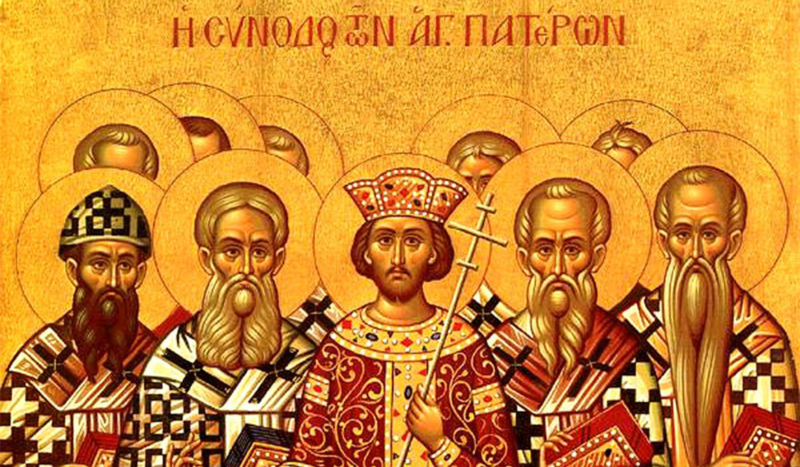
Wikimedia Commons
CV NEWS FEED // Ahead of the 1,700th anniversary of the Council of Nicaea May 20, the Vatican’s International Theological Commission (ITC) issued a major new document reaffirming the Nicene Creed as central to Christian faith and unity.
The Council of Nicaea, convened by Emperor Constantine in 325 in what is now modern-day Turkey, marked the first time bishops from across the Christian world gathered to define core tenets of the faith. Their work produced the foundational creed that, once completed decades later at the Council of Constantinople, became the Church’s universal profession of belief in Jesus Christ as the Son of God.
The nearly 70-page document from ITC, titled “Jesus Christ, Son of God, Saviour – the 1700th anniversary of the Ecumenical Council of Nicea (325–2025),” aims to offer more than an academic reflection, according to its creators.
Instead, the ITC presents it as “a valuable and timely synthesis that can positively assist growth in faith and lived witness to faith within the Christian community.”
“For the faith professed at Nicaea makes us see the explosive and enduring newness of the coming of the Son of God among us,” the ITC said.
This year’s commemoration comes at a pivotal moment: It falls within the Catholic Church’s Jubilee Year 2025 and coincides with a rare shared Easter celebration between Christians of both East and West.
Reflecting on the significance of this moment in a January 2024 address, Pope Francis emphasized that amid war, anxiety, and global uncertainty, what is most essential and urgently needed is “precisely the faith in Jesus Christ proclaimed at Nicaea,” according to ITC.
“The faith that the Council of Nicaea witnesses to and hands on is the truth of a God who, being Love, is Trinity, and who, out of love, becomes one of us in his Son,” the ITC said. “This truth is the authentic principle of fraternity between individuals and peoples, and of the transformation of history in accordance with the prayer that Jesus addressed to the Father on the eve of the supreme gift of his life for us, ‘that they may be one, as we are one.’”
According to Vatican News, the document explores four key areas: the theological meaning of the Creed, its reception in Christian liturgy and catechesis, its role in shaping the Church’s structure and mission, and the call to keep it accessible to all the faithful, especially the most vulnerable.
Drawing on the Church Fathers and liturgical tradition, the commission encourages Christians today to “draw from that fountain of living water” that has sustained the faith across generations.
With all major Christian traditions celebrating Easter on the same date in 2025, the ITC calls this “an invaluable opportunity” to bear united witness to the triune God and the shared hope of salvation in Christ.
To mark the occasion, a Vatican-sponsored study day will be held May 20 at the Pontifical Urban University in Rome. The event will feature contributions from the theologians who drafted the document, alongside other experts reflecting on the contemporary relevance of the Council of Nicaea.

